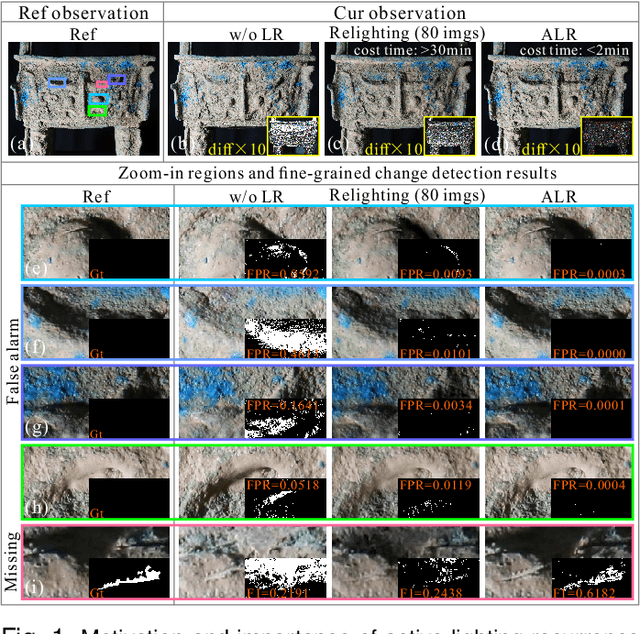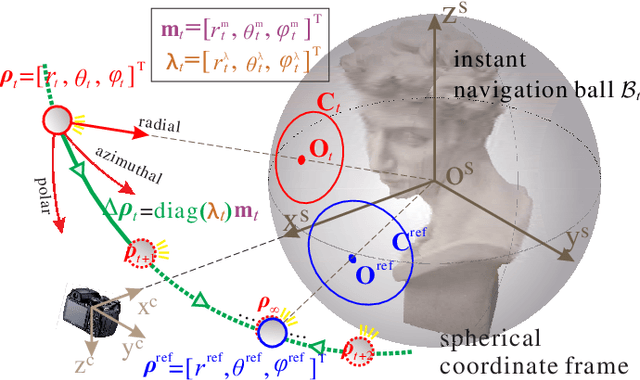Active Lighting Recurrence by Parallel Lighting Analogy for Fine-Grained Change Detection
Paper and Code
Feb 22, 2020



This paper studies a new problem, namely active lighting recurrence (ALR) that physically relocalizes a light source to reproduce the lighting condition from single reference image for a same scene, which may suffer from fine-grained changes during twice observations. ALR is of great importance for fine-grained visual inspection and change detection, because some phenomena or minute changes can only be clearly observed under particular lighting conditions. Therefore, effective ALR should be able to online navigate a light source toward the target pose, which is challenging due to the complexity and diversity of real-world lighting and imaging processes. To this end, we propose to use the simple parallel lighting as an analogy model and based on Lambertian law to compose an instant navigation ball for this purpose. We theoretically prove the feasibility, i.e., equivalence and convergence, of this ALR approach for realistic near point light source and small near surface light source. Besides, we also theoretically prove the invariance of our ALR approach to the ambiguity of normal and lighting decomposition. The effectiveness and superiority of the proposed approach have been verified by both extensive quantitative experiments and challenging real-world tasks on fine-grained change detection of cultural heritages. We also validate the generality of our approach to non-Lambertian scenes.
 Add to Chrome
Add to Chrome Add to Firefox
Add to Firefox Add to Edge
Add to Edge